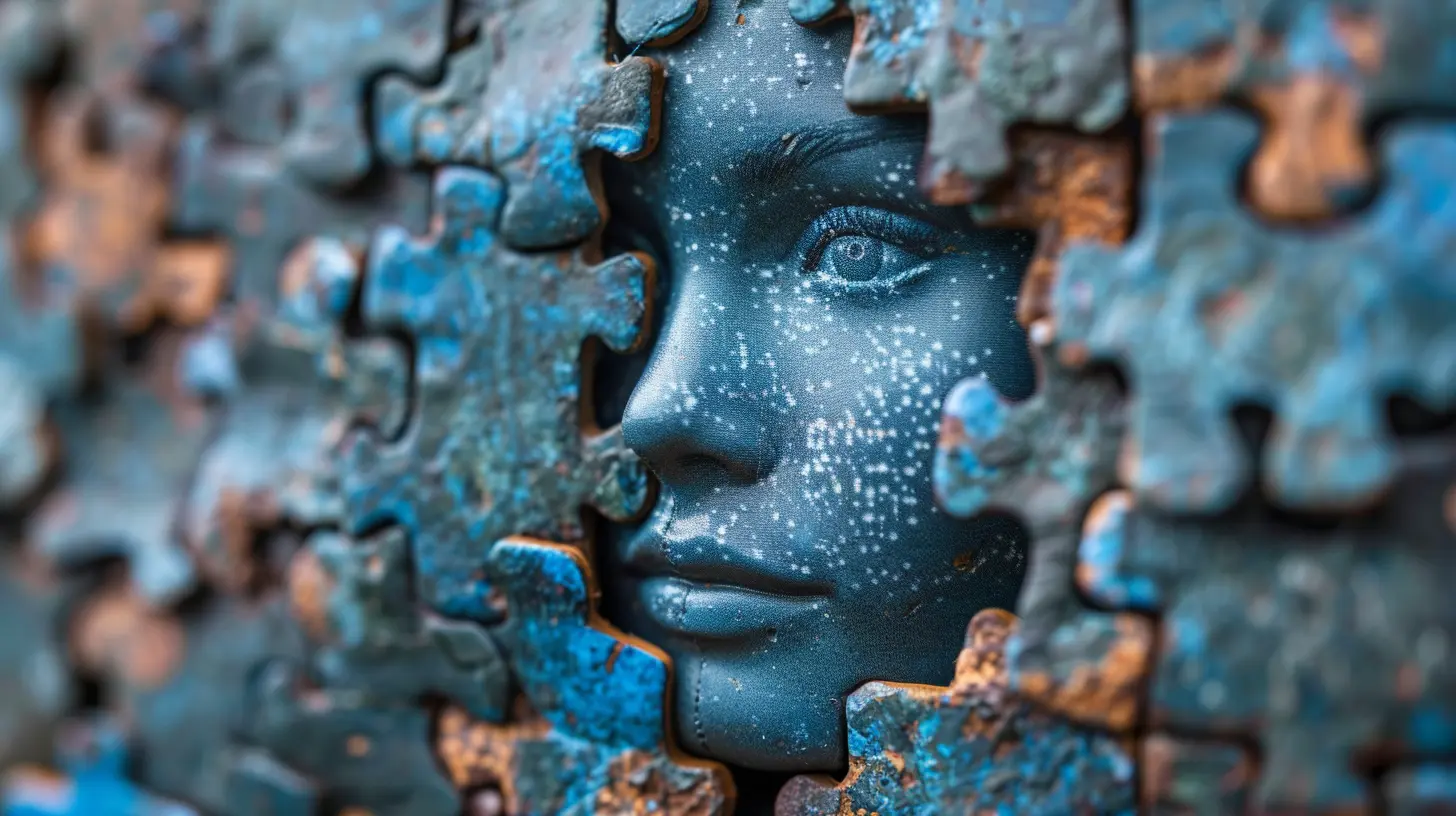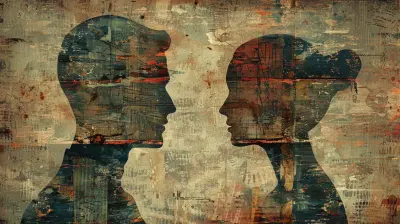The Role of Altruism in Human Behavior: Are We Truly Selfless?
20 November 2025
Altruism—it’s a word that pops up often in stories of heroism, charity, and kindness. We’re told that when people act out of altruism, they’re doing something selfless, putting others’ needs ahead of their own. But is that really true? Are humans truly capable of being selfless, or is there always some hidden motive, some underlying benefit that we’re seeking even when we appear to be acting out of pure goodwill?
In this article, we’re going to dive deep into the fascinating world of altruism, human behavior, and the psychology behind it all. Whether you're lending a hand to a friend or donating to a charity, is there ever such a thing as a completely selfless act? Let’s find out!

What Exactly is Altruism?
At its core, altruism refers to the principle or practice of concern for the welfare of others. It’s the idea that we can act in ways that benefit someone else without expecting anything in return. Think of it as the opposite of selfishness. It’s like when you see someone drop their wallet, and you immediately run to give it back to them without a second thought. Or when you spend your weekend volunteering at an animal shelter, simply because you love animals and want to help.But here’s where things get tricky: Is there ever an action that we take that doesn’t somehow benefit us, even if it’s just on an emotional level? Does helping others make us feel good about ourselves—and if it does, can that still be considered altruism?

The Psychology Behind Altruism
Psychologists have long been fascinated by the concept of altruism, and for good reason. On the surface, the idea of acting purely for someone else’s benefit doesn’t seem to align with our evolutionary roots. After all, shouldn’t we be focusing on survival and making sure our own needs are met first?Well, not exactly. In fact, many researchers believe that altruism could actually be an evolutionary advantage. Think about it: if members of a group help each other out, that group is more likely to thrive as a whole. This is where the idea of reciprocal altruism comes into play. It’s the concept that helping someone else now might lead to them helping you later. It’s like a social contract—even if you’re not consciously thinking about it, you’re building a network of mutual support.
The Biological Basis of Altruism
From a biological standpoint, altruism may be a bit more hardwired than we realize. Studies have shown that when people engage in altruistic acts, certain areas of the brain light up. These are the same areas that are associated with rewards and pleasure—yes, helping others can literally trigger the "feel-good" chemicals in your brain!This phenomenon, sometimes referred to as the helper's high, could explain why we often feel so good after doing something kind for someone else. It’s almost like nature’s way of rewarding us for being cooperative and fostering social bonds, both of which are essential for survival.
Yet, even if we’re biologically rewarded for being altruistic, does that mean our actions are any less genuine? That’s where things get murky.

Psychological Theories About Altruism
There are several different theories in psychology that try to explain why humans engage in altruism, and whether or not it’s truly selfless. Let’s explore a few of the most prominent ones:1. The Social Exchange Theory
This theory suggests that all human interactions are essentially transactions. According to the Social Exchange Theory, we weigh the costs and benefits of our actions. Even when we do something altruistic, we’re subconsciously asking ourselves, “What’s in it for me?” It could be something tangible, like expecting a favor in return, or something intangible, like gaining social approval or feeling good about ourselves.For instance, you might volunteer for a cause because it makes you feel valuable and gives you a sense of purpose. While you’re helping others, you’re also benefiting emotionally. So, is that truly selfless?
2. The Empathy-Altruism Hypothesis
On the other hand, the Empathy-Altruism Hypothesis, which was developed by psychologist C. Daniel Batson, suggests that altruism can indeed be selfless—at least in certain situations. This theory posits that when we feel empathy for another person, we are motivated to help them purely out of concern for their well-being, not because we expect anything in return.Have you ever seen someone in distress and felt an overwhelming urge to help, not because you thought you’d benefit, but simply because you couldn’t bear to see them suffer? That’s empathy-driven altruism at work.
3. Kin Selection Theory
This theory takes an evolutionary perspective and suggests that we are more likely to act altruistically toward close family members because it increases the chances of our genetic material being passed down. Essentially, by helping our relatives survive and thrive, we’re ensuring that our genes continue to propagate. It’s altruism with a bit of a selfish twist, tied directly to the survival of our lineage.This could explain why people are often more willing to make sacrifices for their family members than for strangers.
4. Costly Signaling Theory
The Costly Signaling Theory suggests that humans engage in altruistic behavior as a way to signal their resources and abilities to others. By performing acts of kindness that come at a cost to ourselves, we demonstrate our social value. For example, someone who donates a large sum of money to charity may be signaling their wealth or social status, indirectly benefiting from the altruistic act.In this sense, altruism can serve as a way to build reputation and gain social standing, even if it appears selfless on the surface.

Are We Ever Truly Selfless?
So, after all this, where do we land on the big question: Are humans ever truly selfless?The answer isn’t so clear-cut. In many cases, our seemingly altruistic actions may be driven by subtle, subconscious rewards. Whether it’s the emotional boost we get from helping someone, the social approval we gain, or the evolutionary advantages of forming cooperative relationships, there’s often something in it for us.
But does that mean altruism doesn’t exist? Not necessarily. Even if our acts of kindness come with some benefits, that doesn’t diminish their value. Helping others, whether for empathy, social standing, or personal satisfaction, still makes the world a better place. And isn’t that what really matters?
Perhaps altruism isn’t about being completely selfless but striking a balance between self-interest and the greater good. After all, if we all benefit from helping each other, isn’t that a win-win?
Real-Life Examples of Altruism
To really understand how altruism plays out in the real world, let’s look at a few examples:1. The Bystander Who Steps In
Imagine you’re walking down the street and see someone struggling to carry heavy bags. Without thinking, you rush over to help them. You don’t expect any reward or recognition, but you feel a sense of satisfaction when they smile and thank you. You helped not for gain, but because you empathized with their struggle.2. Charitable Donations
Many people donate to causes they care about, often anonymously. They don’t expect praise or public acknowledgment, and they may never meet the people they’re helping. Yet, they continue to give because it aligns with their values and makes them feel like they’re contributing to something bigger than themselves.3. Volunteering During a Crisis
When natural disasters strike, there are often stories of people dropping everything to volunteer their time and resources to help others. In these cases, people act out of a genuine desire to assist those in need, often at great personal cost. These individuals may not benefit directly, but they gain a deeper sense of fulfillment from knowing they made a difference.
Conclusion: Altruism and the Complexity of Human Nature
In the end, altruism is a complex and multifaceted part of human behavior. While we may never be entirely selfless, that doesn’t mean our altruistic actions lack value. Whether driven by empathy, social exchange, or biological instincts, the act of helping others is a fundamental aspect of what makes us human.And maybe that’s the point—altruism isn’t about eliminating self-interest, but about recognizing the interconnectedness of our actions. When we help others, we’re also helping ourselves, creating a positive ripple effect in our communities and beyond.
So, the next time you find yourself wondering if an act of kindness is truly selfless, remember that whether or not it benefits you doesn’t diminish its importance. In a world that sometimes feels divided, altruism—whatever its motivation—has the power to bring us together.
all images in this post were generated using AI tools
Category:
Social PsychologyAuthor:

Gloria McVicar
Discussion
rate this article
1 comments
James Lawrence
This article compellingly explores the paradox of altruism, highlighting how even seemingly selfless acts may carry hidden motivations. Understanding these complexities enriches our perspective on human behavior, inviting deeper questions about the nature of empathy and self-interest.
November 21, 2025 at 5:07 AM

Gloria McVicar
Thank you for your thoughtful reflection! I'm glad you found the exploration of altruism and its complexities engaging.


